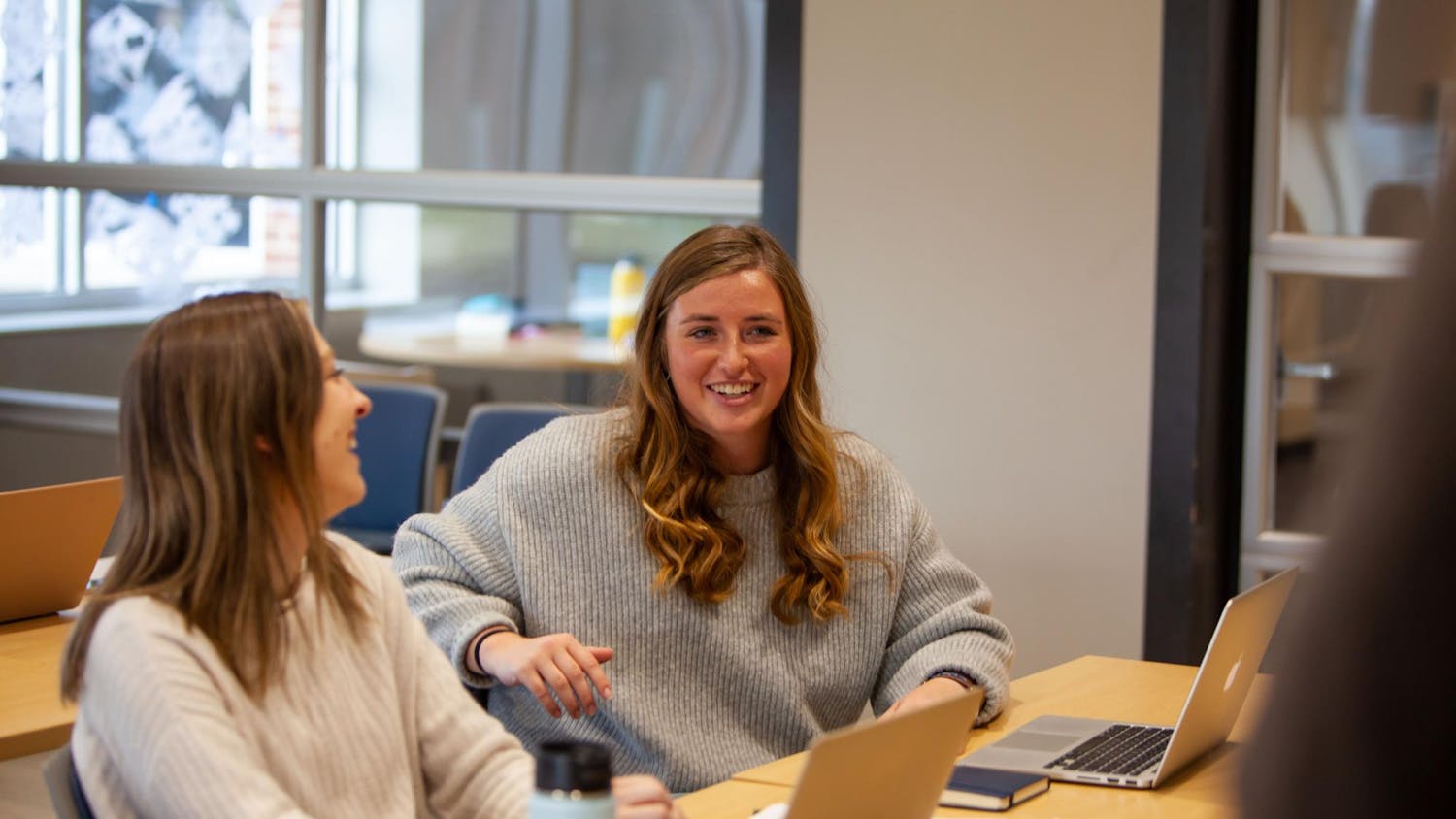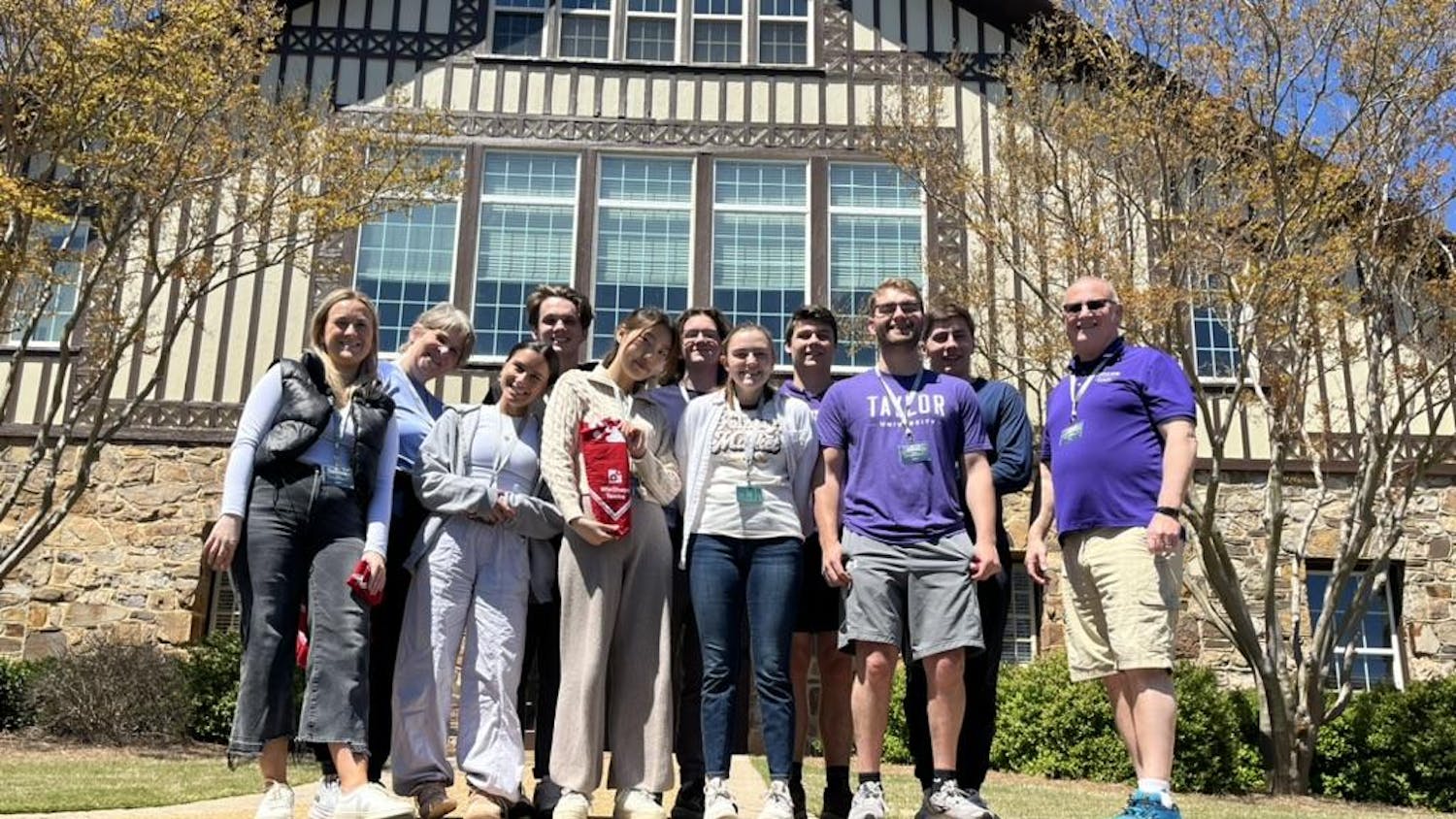Taylor students planning to vote in spades, not necessarily along party lines
By Jon Stroshine, News Editor Sept. 28, 2012
Sophomore Grace Drascic remembers the scene clearly.
While working in an Indiana congressman's campaign offices a few weeks ago, a woman came in and vented to Drascic about her frustration that fellow church members doubted the reality of her faith because of her political beliefs.
"This woman is involved in her church. She loves the Lord, and it was just so frustrating and so disheartening to hear that . . . we were calling her not a Christian simply because of her party affiliation," Drascic said.
The complicated link between religion and politics is behind the results of this week's Echo survey on Taylor students' voting and media habits. Seventy-four percent of 91 respondents to the survey said they plan on voting this November.
That number is substantially higher than the 21.3 percent of 18 to 24 year old citizens who voted in the 2010 elections, as reported by the Center for Information and Research on Civic Learning and Engagement (CIRCLE). Some think religion can fuel and shape political passion, as demonstrated in Drascic's story.
"As in all things, I hope our Christianity changes how we do this," said Katie Westrate, graduate assistant for Global Engagement. "I don't mean just by how you vote . . . . I think as Christians, the process is so important, and you can't cut off your brothers and sisters on the other political party line."
Global Engagement is in the process of preparing a campaign to get students to vote this fall.
Fifty-nine percent of students surveyed said that, on a scale of one to ten, with ten being the most important thing in their lives, current political races are a six or higher in terms of importance.
Westrate and the rest of her team hope to translate those numbers into strong voter turnout.
When Taylor students hit the voting booths on or before Nov. 6, they are sure to bring their Christian worldviews with them, according to Taylor Political Science professor Stephen King.
"The students whom I've been associated with . . . I get the impression that (they) have a pretty strong Christian worldview and that (they) frame (their) world through that lens," King said. "But that would be true of students . . . at other Christian universities."
While those numbers seem to indicate strong political interest, they should be taken with a grain of salt, said Taylor Political Science professor Phil Loy.
Although many students intend to vote, they may not end up doing so, he said. He also added that self-reported political interest can be a dicey statistic.
"I think most Taylor students are marginally, at best, interested in politics," Loy said. "It's not American not to be interested . . . . I'm skeptical (The Echo survey) is an accurate reflection."
Students indicated habits in media consumption, as well, for The Echo survey. Most students consume news-related media once per week (35 percent), do not plan on watching any of the presidential debates (52 percent), and get their news from the internet (58 percent).
The next most common source of news for students was friends and family (20 percent).
"Usually at (college) age, you've kind of formed your own beliefs," said sophomore Joe Friedrichsen. "If you're not involved in politics, you're still gonna get it from your family."
The survey indicated that most students (39 percent) plan to vote mostly Republican.
Almost as many (34 percent) said they do not plan to vote along party lines.
"Most Americans will tell you they're not going to vote straight-party," Loy said. "Even those who do vote straight-party will tell you they're not going to . . . . What their response (is) about is increasingly a political culture hostile to political parties."
King believes such responses show a shift in political culture - one that might run contrary to the partisan-based experience of the woman in Drascic's story.
"I don't think that means that (students) are not politically coherent, I just think what that means is that they are much more relationally based, unlike my generation and previous generations which would tend to be much more partisan-based," King said of the responses indicating a lack of party affiliation.
Graphic by Timothy P. Riethmiller




